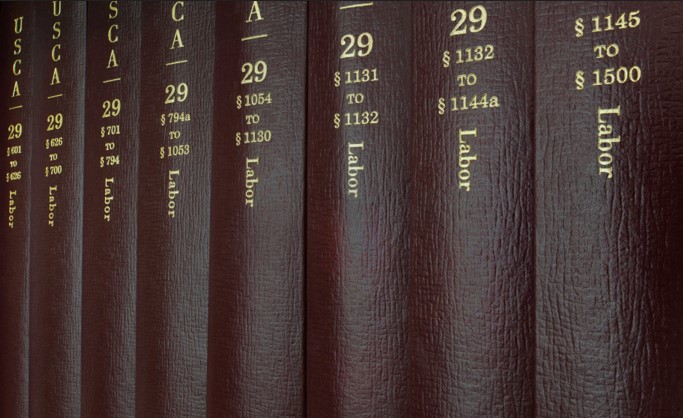Montana’s TikTok Ban: A Legal Perspective
In a recent legal development, the U.S. Court of Appeals for the Ninth Circuit upheld Montana’s statewide ban on TikTok, marking a significant milestone in the regulation of social media platforms. This ruling not only positions Montana as the first state in the nation to completely prohibit the use of the popular video-sharing app but also highlights rising concerns regarding national security and user privacy. Amid increasing scrutiny on foreign technology companies, this ban has stirred a robust discussion on its implications, constitutionality, and potential enforcement challenges.
The Court’s Ruling
The Ninth Circuit arrived at its decision with a narrow majority, ruling 2-1 that Montana’s law—which bans TikTok from operating within the state and prohibits app stores from offering it for download—does not infringe upon constitutional free speech rights. The majority opinion emphasized Montana’s “compelling interest” in ensuring data privacy and security for its residents, arguing that in light of potential risks associated with TikTok’s parent company, ByteDance, the state has a legitimate reason to implement such measures. This ruling stands as a legal affirmation of the state’s proactive approach to digital privacy concerns amid a rapidly evolving technological landscape.
Understanding the Motivations Behind the Ban
The ban, initiated in 2023 under the signature of Governor Greg Gianforte, was framed as a necessary measure to protect state residents from potential surveillance and data collection arising from TikTok’s connections, or perceived connections, to the Chinese government. Officials supporting the ban have characterized it as a defense against foreign interference, with Gianforte expressing satisfaction that the court has reinforced Montana’s stance. This sentiment reflects a broader national concern regarding the influence of foreign-owned technology firms on American data security and digital sovereignty.
Reactions from TikTok and Supporters
In response to the court’s decision, TikTok expressed disappointment and concern, vowing to challenge the ban vigorously. Company representatives argued that the ruling undermines users’ rights by singling out TikTok and limiting access to a platform that over 150 million Americans regularly use. They have reiterated their commitment to protecting the rights of content creators and users alike, asserting that the decision threatens not only the platform’s integrity but also the creative freedom of its community in Montana and beyond.
Criticism of the Ban and Concerns About Its Implications
Detractors of the TikTok ban have emerged from various sectors, including civil rights groups and advocates for digital innovation. Critics argue that the ruling sets a dangerous precedent that could lead to an array of similar actions against other social media platforms. Concerns over the enforceability of the ban also loom large; many question how Montana officials would effectively monitor and restrict app usage effectively, especially given the nature of digital platforms and their far-reaching user bases.
Anticipation of Escalating Legal Battles
Given the significance of this ruling, experts foresee the case potentially escalating to the Supreme Court. The implications of the ruling extend significantly beyond the borders of Montana, considering the increasing tensions between the U.S. and China. The continuing legal fight around TikTok showcases the complex intersection of technology, privacy concerns, and national security—an area that is only expected to gain prominence in future judicial considerations.
Conclusion
Montana’s decision to ban TikTok marks a pivotal moment in the ongoing quest for stricter regulations surrounding social media and emerging technologies. As the legal proceedings unfold, the discourse on privacy, digital rights, and national security is likely to intensify. The outcome could have far-reaching consequences not only for TikTok but for the tech industry as a whole, as both proponents and opponents assess the future landscape of digital regulation. As such, this case underscores the critical importance of balancing individual rights with collective security concerns in an increasingly digital age.
FAQs
What is the main reason for Montana’s ban on TikTok?
The primary reason for the ban is concerns over national security and user privacy, specifically regarding TikTok’s parent company, ByteDance, and its potential ties to the Chinese government.
How did the Court of Appeals rule on the ban?
The U.S. Court of Appeals for the Ninth Circuit upheld the ban, concluding that it does not violate free speech protections and that Montana has a compelling interest in protecting the data privacy of its residents.
What has been TikTok’s response to the ruling?
TikTok expressed disappointment in the ruling, asserting that it unfairly targets the platform and infringes upon the rights of its users. The company has committed to continuing its legal fight against the ban.
Are there concerns about the enforceability of the ban?
Yes, critics have raised questions about how Montana could effectively enforce the ban, particularly in a digital landscape where users often access apps and services from various locations.
What might be the future implications of this ruling?
The ruling could set a precedent for similar bans in other states, potentially leading to a fragmented landscape of social media regulations across the U.S. It may also escalate to the Supreme Court, thereby impacting future legal interpretations of digital privacy and regulatory authority.

